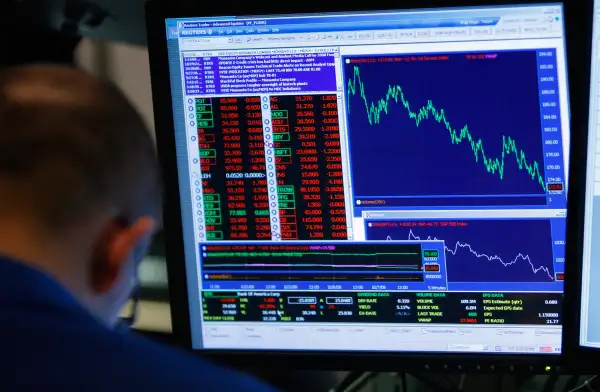How Not to Worry About the Next Stock Market Crash

About two-thirds of adults expect to experience another financial crisis in their lifetime, according to a recent Northwestern Mutual survey. Yet only 38% say they are confident their financial plans can withstand a bad market cycle.
It's reasonable to worry: It's not simply that there have been two giant market crashes in the past 15 years. After all, the market has climbed back from those painful lows and is hitting records again—but that's really just something else to make you a touch nervous. Earlier this year, Wall Street's boom feels disconnected from the slower, start-stop recovery on Main Street, where the economy actually contracted slightly in the first three months of 2015. Recently even Federal Reserve chair Janet Yellen wondered aloud if stock prices were getting ahead of themselves.
To get the higher returns stocks can deliver, there's no way to avoid the risk of loss, but you can take steps to buffer the shocks.
Begin With Balance
Financial advisers always say you should adjust your stock exposure to your risk tolerance. But as the boxer Mike Tyson once said, "Everyone has a plan until they get punched in the mouth." If you are relatively new to investing—or find your market mood swings back and forth—a good default investment is a classic balanced fund like Money 50 choice Vanguard Wellington . It invests around 65% in stocks, with the rest in bonds, so it falls less than pure stock funds do in market drops (see graphic at right). Wellington holds blue-chip companies with solid dividends and does some of the work of monitoring the markets for you, re-balancing when stocks go up or down so your risk profile doesn't change.
Take Refuge Abroad
"There is a clear home bias among U.S. investors," says Omar Aguilar, chief investment officer of equities at Charles Schwab. But while staying at home might feel safer, spreading your bets may smooth your returns, since markets don't move in lockstep. Research from Vanguard shows that since 1970, putting 20% to 40% of equities in foreign stocks lowered volatility. The iShares Core Growth Allocation ETF is an index balanced fund that combines U.S. and foreign stocks.
Think in Buckets
"You shouldn't be in the market if you need the money in less than three years," says Tim Clift, investment strategist at Envestnet. It can help to view your portfolio as a row of buckets. The first bucket covers near-term costs and holds low-risk, short-term bonds and cash. The next bucket might hold higher-yielding intermediate-term bond funds. Any stocks would go in the third bucket, for money you won't need for years.
Adapted from "Never Worry About Money Again," by Carla Fried, Ian Salisbury, and Taylor Tepper, which appeared in the July 2015 issue of Money magazine.